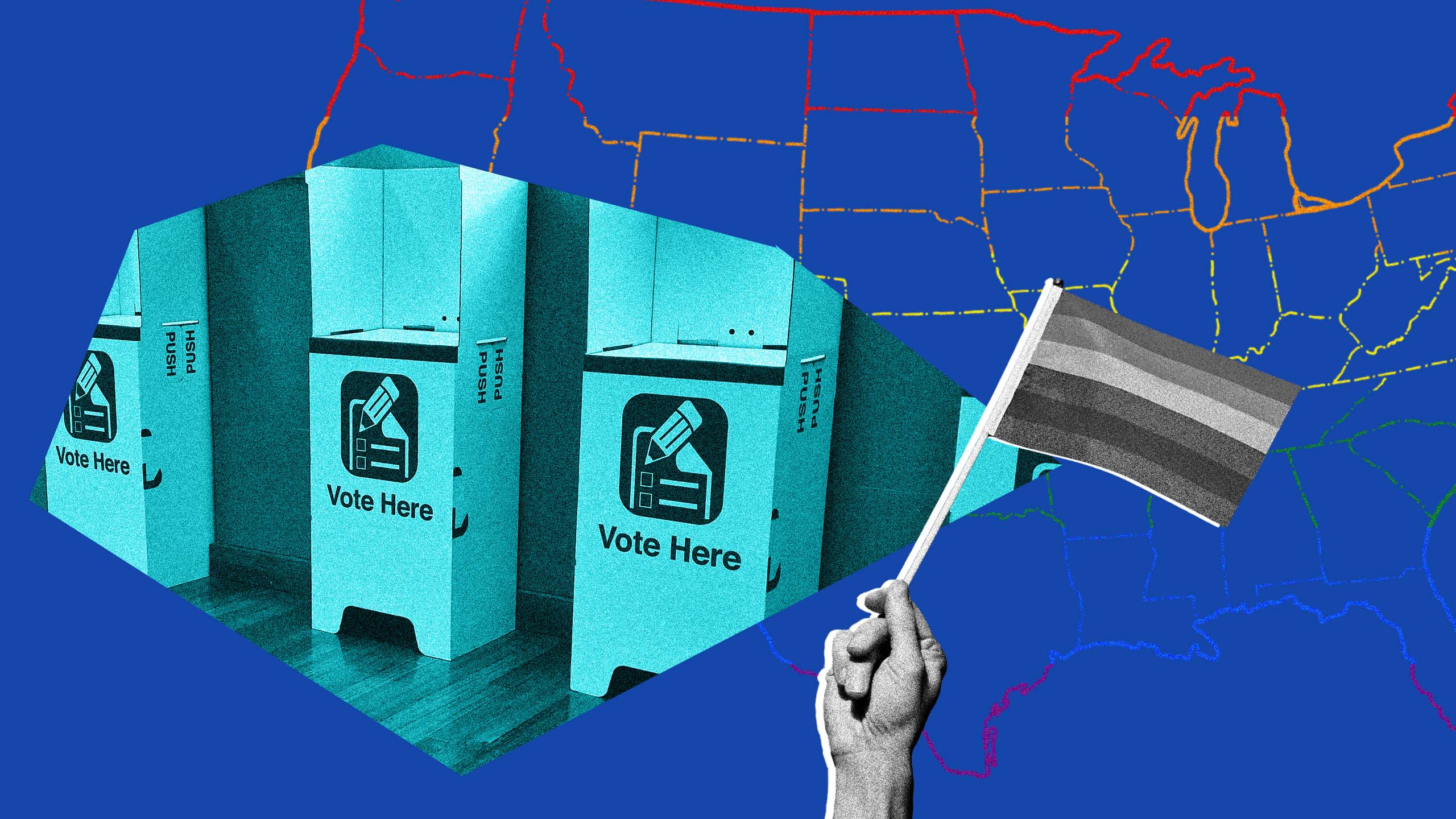For the first time ever, LGBTQ2S+ candidates are vying for seats in next week’s elections in all 50 states across the U.S.
Per the LGBTQ Victory Fund’s 2022 Out on the Trail report, a record 1,065 out LGBTQ2S+ candidates ran for public office across all 50 states, in addition to the territories of Guam and the U.S. Virgin Islands. A record 678 of those candidates won their primaries and will appear on the midterm ballot on election day next week. Out of the queer candidates running, over a third (38.2 percent) are LGBTQ2S+ people of colour, and 13.9 percent are non-cisgender.
“Representation is power. And getting into elected office means that you can use that power,” said Sean Meloy, the vice president of Political Programs at LGBTQ Victory Fund, speaking to Xtra. “The movement has been working hard for decades to make sure that the people who step forward are able to do just that.”
Advocates hope that these historic numbers will lead to other historic firsts on Nov. 8. In Massachusetts, Democrat Maura Healey is the favourite to become the first openly lesbian governor elected not just in the state, but in the entire country. And in Oregon, Democratic candidate Tina Kotek is also vying for the title of governor.
The record number comes after a year of backlash against the queer community in the public and political spheres. Supporters of Florida’s controversial “Don’t Say Gay” law have accused the bill’s opponents of trying to “groom” or “indoctrinate” children—accusations which have also been levied at Democratic candidates in other states this election cycle. Queer candidates, including Florida’s Janelle Perez and Eunic Ortiz—who are both openly queer Latinas running for state senate—hope to combat this rhetoric and further LGBTQ2S+ rights in Florida if elected.
This year’s record number of queer candidates continues an ongoing trend that began four years ago, known as the “rainbow wave.” In 2018, a then-record number of openly LGBTQ2S+ candidates ran, a number that was subsequently surpassed in 2020—including in more conservative places such as Louisiana, Mississippi (the only state that currently has no LGBTQ2S+ representation) and Guam.
But despite the record numbers running this fall, LGBTQ2S+ people still remain underrepresented across all levels of government. In order to achieve proportional representation, there would need to be over 35,000 queer legislators across the country.
Within the larger group of LGBTQ2S+ candidates, racial and gender diversity have also generally risen over the last four years. LGBTQ2S+ candidates of colour accounted for 28.7 percent and 30.9 percent of all queer candidates in 2018 and 2020, respectively. In 2020, New York voters elected Ritchie Torres and Mondaire Jones, two openly gay Black representatives, to Congress.
Non-cisgender candidates accounted for 9.1 percent and 7.9 percent of all queer candidates in 2018 and in 2020, respectively. In 2020, Delaware voters elected Sarah McBride, its first openly trans state senator. Numbers of non-binary and/or genderqueer candidates have also seen massive gains over the past four years: per Victory Fund, 54 are running in 2022, compared to 17 in 2020 and just four in 2018.
“Voters are sick and tired of the relentless attacks lobbed against the LGBTQ2S+ community this year,” said Annise Parker, president and CEO of LGBTQ Victory Fund, and former mayor of Houston in a statement. “This November, we have an opportunity to elect more LGBTQ2S+people to office than ever before. But it’s going to take each and every one of us. Sitting on the sidelines isn’t an option when our rights are on the chopping block. This is a time for action. This is a time for unity.”


 Why you can trust Xtra
Why you can trust Xtra


